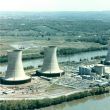“All” materials means all materials
By Christopher A. Ford, November 19, 2012
In Round Two of this Roundtable, Professor Daniel Joyner discusses the IAEA's efforts to verify the absence of undeclared activities in Iran as an "additional and separate" legal standard imposed beyond Iran's Comprehensive Safeguards Agreement (CSA). He asserts that this "new" criterion is ultra vires. It is "irrelevant," he writes, whether there are undeclared nuclear materials or activities in Iran: It is enough merely that "all declaredsafeguarded nuclear material in Iran has not been diverted to non-peaceful use" (emphasis added).
This is a poor argument easily dispensed with, as indeed both Andreas Persbo and I have already done in our earlier contributions. (I have also reviewed this legal history in a recent briefing paper.) It's a shame to have to recapitulate, but obviously necessary.
In truth, there is nothing new or additional about the IAEA's responsibility for assessing whether undeclared nuclear activities exist in Iran, for it has had this role since Iran's CSA came into effect in 1974. (It has not always had investigative authorities adequate to this task, and did not always have reason to look beyond Iran's declarations, but that is a different question. In any case, the UN Security Council has done much to remedy this lack of tools vis-à-vis Iran.) Pursuant to Article 2 of Iran's CSA, the IAEA has "the right and the obligation to ensure that safeguards will be applied … on all source or special fissionable material in all peaceful nuclear activities within the territory of Iran, under its jurisdiction or carried out under its control anywhere."
Joyner does not explain how he interprets the word "all" here, but for him it apparently doesn't mean the whole amount, quantity, or extent of. Instead, it seems he would have Article 2 read something like: "to ensure that safeguards will be applied … only to whatever source or special fissionable material Iran chooses to declare to the IAEA." Of course, Article 2 doesn't actually say that.
It is not merely that Joyner's interpretation is inconsistent with the text. His standard would be weak in practice. As he has written, safeguarding all nuclear material in Iran covers nothing more than whatever is declared. By his interpretation, therefore, Iran would never have been in safeguards noncompliance, even when secretly working on uranium conversion, plutonium separation, and laser enrichment. (These things went on for years before being declared.) Nor does the confusion stop there, for Joyner offers no reason why Iran could not now amend its declaration to drop all mention of its enrichment program — thus, absolving it of any need to apply safeguards to its fissile material production infrastructure. (For Joyner, in fact, nuclear work doesn't even have to be secret to fall outside safeguards jurisdiction; it just has to not appear in a declaration.)
The best phrase to describe this argument is more pungent than merely to term it "legally incorrect," but that will have to suffice here. Because the IAEA is charged with safeguarding "all" materials in Iran, the agency is necessarily and properly concerned whether nuclear material or activities have been omitted from Iran's declarations. It has not acted ultra vires.
Joyner laments that, in its search for undeclared activities in Iran, the IAEA has become a "politicized instrument" for the West, which he says taints "the important work" the agency has done in the past. His own interpretation of the law, however, would contravene Iran's CSA, gut nuclear safeguards, and facilitate nuclear weapons proliferation. The IAEA and the nonproliferation regime do not need the crocodile tears of such friends. They simply need their rules to be read clearly.
Topics: Nuclear Energy, Nuclear Weapons
Share: [addthis tool="addthis_inline_share_toolbox"]














